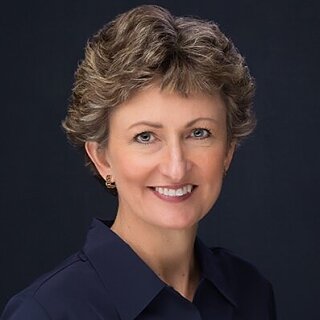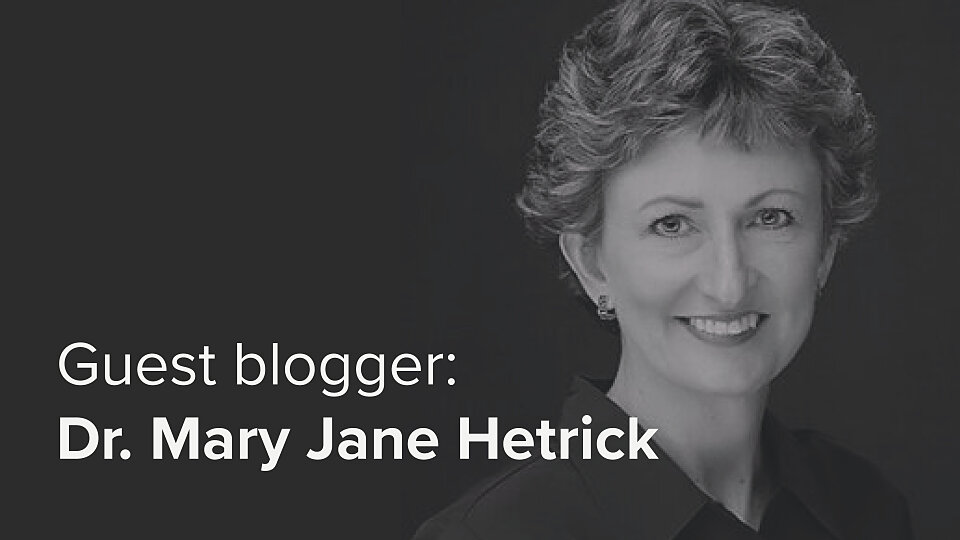Women's History Month - Q&A with Dr. Hetrick
In honor of Women's History Month, we asked our Board President, Dr. Mary Jane Hetrick, to answer a few questions about her experience as a woman in leadership. Read her insights on these 5 important questions below.
- What are three words that describe you? What else should we know about you?
- You’ve been described as a “powerhouse for good” who engages communities to care for vulnerable populations. Will you tell us about your work?
- As a leader in the non-profit sector, who are other leading women who have inspired you?
- What advice would you give to women just starting out in their careers?
- In guiding a women-run organization that walks alongside thousands of young girls facing adversity, what progress do you hope to see for this next generation?
 Dr. Mary Jane Hetrick has been immersed in the nonprofit sector since earning her PhD focused on nonprofit management in 2004. She has since worked as a consultant, a volunteer, a board member and branch manager of a national nonprofit organization. She also taught Master of Public Administration courses for 12 years in marketing, grant writing, and nonprofit executive leadership.
Dr. Mary Jane Hetrick has been immersed in the nonprofit sector since earning her PhD focused on nonprofit management in 2004. She has since worked as a consultant, a volunteer, a board member and branch manager of a national nonprofit organization. She also taught Master of Public Administration courses for 12 years in marketing, grant writing, and nonprofit executive leadership.
Dr. Hetrick is the founder and president of Foundation Logic, LLC that focuses on cultivating organizational performance. Hearing the experiences with the foster care system of people close to Dr. Hetrick caused her to take a keen interest in being part of the solution.
1. What are three words that describe you? What else should we know about you?
"Christian, compassion, and problem-solver describe my core beliefs and ideals that I strive for every day as I remind myself, “'when you know better, do better.'”
I've also found some of my top strengths according to the Gallup StrengthsFinder test—Restorative, Individualization, and Connectedness—convey well my passions and how I tend to approach the world. As Restorative, I enjoy the challenge of identifying problems and finding solutions; as Individualization, I see the unique qualities of each person and how they work together productively; and as Connectedness, I believe that almost every event has meaning and have faith in the links among all things."
2. You’ve been described as a “powerhouse for good” who engages communities to care for vulnerable populations. Will you tell us about your work?
"I serve on multiple nonprofit boards serving a range of communities and causes from foster families to veterans to K-12 education. My work has connected me with dozens of donors, foundations, and civic-minded individuals with hearts ready to serve. The breadth of my connections allows me to respond nimbly to needs that suddenly arise in the community, and I strive to put the right people in touch with the right causes. I find incredible joy in being able to successfully match people’s time, talent, and treasure to community needs. Philanthropy is often wrongly viewed as a zero-sum game, in which donations to one cause necessarily subtract from what could be done for another worthy cause. But serving in multiple areas has allowed me to see that synergies between causes actually enable resources to expand to meet the needs.
Even if I have not worked with a cause before, if a nonprofit executive director or board member has genuine passion and their “logic model” makes sense, then I instinctively want to build that person’s capacity to make a difference. I love the challenge of synthesizing good intentions with foundational principles of excellence and discernment."
3. As a leader in the non-profit sector, who are other leading women who have inspired you?
"The woman who first prompted my foray into the nonprofit sector was a graduate school adjunct professor and the executive director of a domestic violence shelter. Her commitment and passion for bettering the lives and futures of the women and children who sought protection, as well as finding ways to spur systemic change, inspired me to go and do likewise and honestly, I never looked back.
Women like Chrystal Smith inspire me as well—those who have an innate sense of missing links in the community and the drive to meet those needs and make a bigger impact—and it is my privilege to help provide the planning and structure needed to bring their vision to reality.
My adult daughter inspires me, who was an exceptional student but never sought to compete against others. She has been an amazing example of challenging herself to be better, to aspire higher, without worrying about what anyone else was doing or viewing opportunities as competition."
4. What advice would you give to women just starting out in their careers?
"I wish I had been exposed to the concept of understanding your innate strengths when I was in my 20s or younger. I was raised to focus on acquiring general intelligence that would enable me to pursue a lucrative career. So, I initially pursued computer science and then business in college. It wasn’t until a fortuitous elective on nonprofit administration in graduate school that I started to discover how my innate interests and abilities could align in my work. Many people have questioned the breadth of what is “on my plate” but the cliché is true, if you are following your passion, then work is immensely enjoyable even when it is intense and time-consuming.
There are some unnecessary and false dichotomies in pursuing areas of study. For example, the misconception that degree paths and careers are oriented either toward philanthropic good or toward making money—this is a false choice. In fact, some university engineering programs are realizing that if they cover and market how a technical degree can enable graduates to serve their communities, rather than simply make money for themselves, they will attract more female students. So, a piece of advice is don’t be afraid to do your own research and broaden your horizons to discover what yet-unknown possibilities are available in your area of interest. Plus, if most jobs of the future have not been created yet, then why not apply your personal strengths, aptitudes, experiences, and desires to forge your own path!"
5. In guiding a women-run organization that walks alongside thousands of young girls facing adversity, what progress do you hope to see for this next generation?
"I hope that broader awareness, deeper knowledge, and greater transparency about the realities facing thousands of young girls will have a multiplier effect to build community backing and generate support for systemic changes in laws and policies. While there are certainly downsides to the proliferation of communication channels, a positive is that it is harder for the truth to be obscured.
I also see such potential for greater synergies and partnerships as we reach a tipping point in the philanthropic sector. More nonprofits are realizing the benefits of engaging donors and other stakeholders to share knowledge and discover new paths of progress, instead of just expecting donations based on past performance. Women like Chrystal are researching, listening, and offering new ideas for tackling adversity. Listening to them offers great hope for this next generation!"


